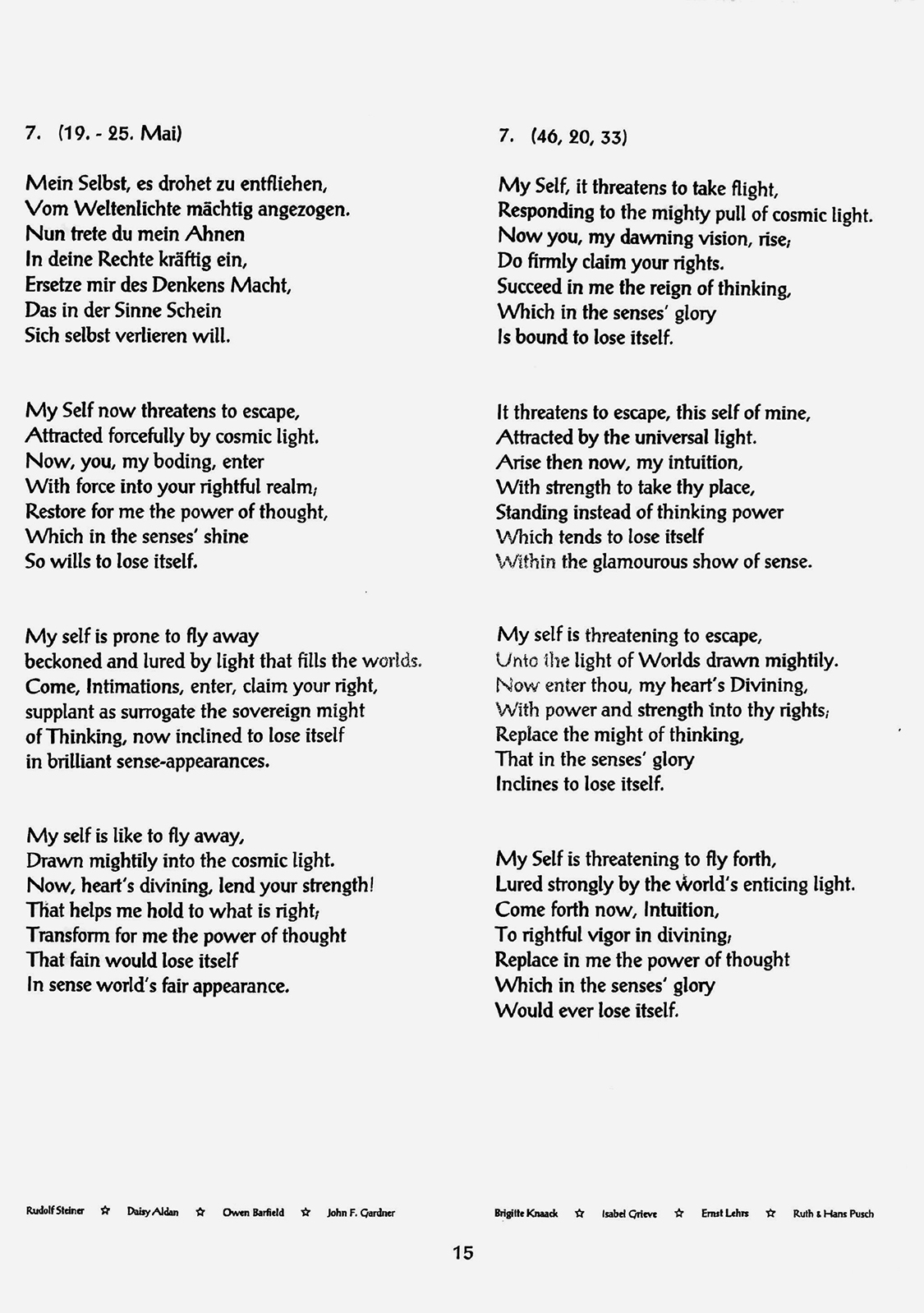Rudolf Steiner’s Calendar of the Soul Verse 7
Introduced by Walter Alexander

Watercolor by Kathie Young

translations courtesy of Mercury Press
The key line is the third: Nun trete du mein Ahnen. “Now step forth my…Ahnen.”
The familiar “du” is chosen for “you” rather than the formal “Sie” because it is intimate, personal. What is to substitute for the definite thinking lured away by the sense world? Ahnen. “Ahnen” is about experiencing the first hints of emergence—not just what lies in the future as in presentiment, intimation, foreboding (without the dark shading), but also what awaits in the present for us, but lies in darkness until the light of our attention grows strong and confident enough to stay awake in uncertainty and become truly receptive. Expectancy, poised attentiveness for the new, the not-yet-fully-formed. We are to unfold and create new sense organs.
This devotion to the new is, of course, love. It is love for the arriving child, for an arriving world, for an arriving thought, conversation, person or event. It is, as Shakespeare wrote, “the star to every wand’ring bark (a three-masted ship!) whose worth’s unknown.”
Sonnet 116, William Shakespeare
Let me not to the marriage of true minds
Admit impediments. Love is not love
Which alters when it alteration finds,
Or bends with the remover to remove.
O no! it is an ever-fixed mark
That looks on tempests and is never shaken;
It is the star to every wand’ring bark,
Whose worth’s unknown, although his height be taken.
Love’s not Time’s fool, though rosy lips and cheeks
Within his bending sickle’s compass come;
Love alters not with his brief hours and weeks,
But bears it out even to the edge of doom.
If this be error and upon me prov’d,
I never writ, nor no man ever lov’d.

Portrait by Larry Young
